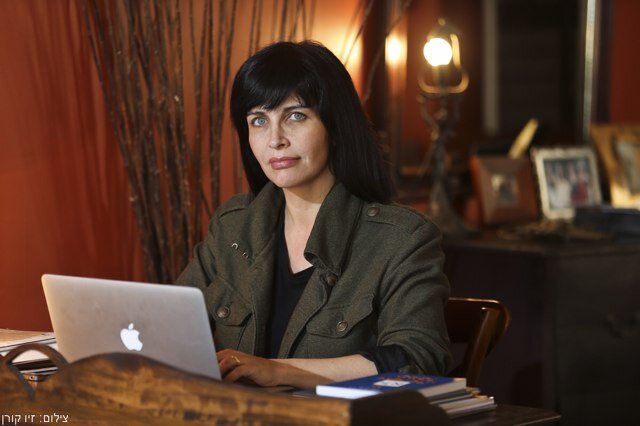This article was first published in German in the weekly Die Zeit, February 20, 2014 under the title „Wir sind wie ihr. Warum uns die Palästinenser anerkennen müssen“. We publish the English original with the permission of the author. Dr. Wilf is a member of the Advisory Board of the Berlin International Center for the Study of Antisemitism (BICSA).
The Essence of Peace
By Dr. Einat Wilf
Chancellor Angela Merkel and her entire government are coming to Israel as great friends of the State of Israel and its people. The talks between the two governments will take place in anticipation of US Secretary of State John Kerry’s Framework Agreement for Peace. Early leaks indicate that the document will include a statement, requested by Israel and its Prime Minister that, as part of any final peace agreement, the Palestinians recognize Israel as the “Jewish State” or as the “Homeland of the Jewish People.”
While this request is supported by the vast majority of Israelis, as well as the Chair of the Opposition and the Labor Party Itzhak Herzog, some have not understood what it means and why it is necessary. Others have argued that it is merely a hawkish ploy to avoid reaching any agreement with the Palestinians, or that it is a sad mark of Israel’s low self-confidence that it needs the Palestinians to tell it what it is.
The Prime Minister’s request is none of the above. It is the one core demand that, once met, will mean that peace is possible. Palestinian recognition of Israel as the homeland of the Jewish people is not a condition for peace – it is the very essence of peace.
Israel does not need Palestinian recognition in order to know what it is. Those who have dreamt, founded, and built it have done so with one purpose in mind: create a sovereign state for the Jewish people in their ancient homeland. It doesn’t matter if those who established the Jewish state were secular atheists who set out to build an egalitarian socialist utopia in the spirit of the Hebrew Prophet, religious Jews who hoped to restore biblical traditions to the modern state, or national liberals who imagined Jew and Arab, Christian and Muslim, living side by side in peace in a Vienna inspired Judenstaadt. They all wanted a Jewish state, but their visions of it were very different.
Being the Jewish state was never to be a simple concept. Jewish civilization, like all ancient civilizations, is so rich as to support any system of governance and any set of values that its bearers choose. Unlike what Palestinian leaders say when they reject the Israeli request for recognition, there is nothing in the concept of Jewish state that is necessarily religious rather than secular nor that it is only for Jews. Like all ancient value systems that have been constantly evolving, Judaism serves as a repository of liberal, as well as ultra-conservative values; it is in the eye of the beholder and the interpreter. It is partial to neither of them. Being the Jewish state simply means being the one place in the world where the Jewish people, as a people, are free and sovereign to interpret Jewish civilization and determine their own fate. Being the Jewish State means nothing more, but also nothing less.
The Palestinians need to recognize Israel as the Jewish state, not for the sake of the Jews, but for their own sake and dignity and for the cause of peace. Time and time again, the Palestinians have rejected opportunities to live freely in their own sovereign state because in doing so, means coming to terms with the Jewish state. Already in 1947, the Arab world, including the Arabs of Palestine (later to be termed Palestinians), rejected the partition of the land into a Jewish State and an Arab State as proposed by the United Nations. They did so because they told themselves that Zionism is not the self-determination movement of the Jewish people, but rather a colonial movement that has brought strangers to their land, strangers who – faced with determined resistance – are destined, sooner or later, to leave it.
In comparing the Jews in the Land of Israel to foreign colonials who will succumb to sustained resistance, the Palestinians might have told themselves a comforting story about a future without Jews and without Israel, but one that has repeatedly robbed them of their present. They have refused any solution that would create a Palestinian state because the price of doing so meant finally accepting that the Jews should have their own state, too. They preferred to have nothing rather than the dignity of their own state,if it meant sharing the land with the state of the Jewish people.
To build a peaceful future, the Palestinians need to leave behind the idea that the Jewish people were strangers who have come to a strange land and, therefore, will one day go away. Once the Palestinians recognize Israel as the homeland of the Jewish people, they will finally be accepting that in creating the State of Israel, the Jewish people have come home. In doing so the Palestinians will signal to the world, to Israel and, above all, to themselves, that they are finally ready to part with a false future in order to build a real present: one in which both the Jewish People and the Palestinians people can live in peace as a free people in their own sovereign states – one Jewish, one Palestinian.

